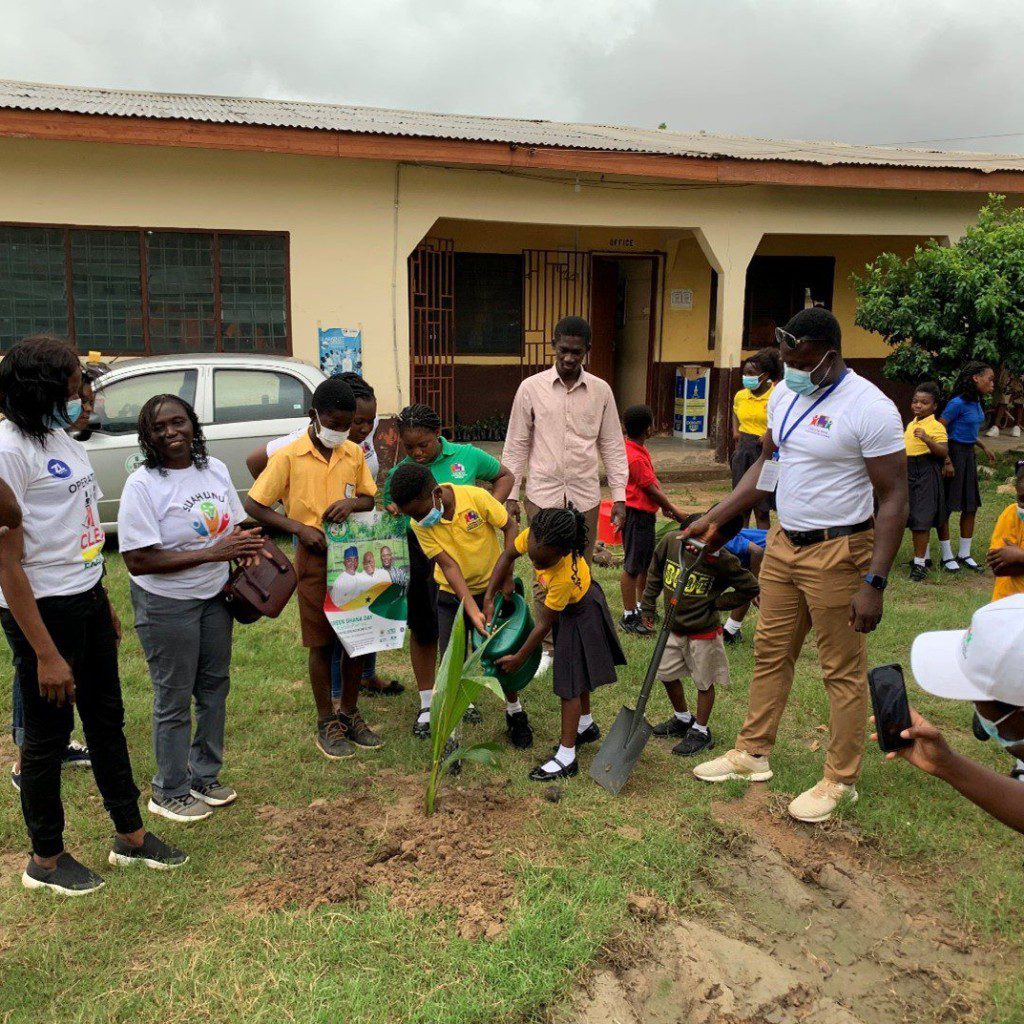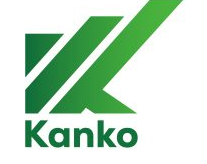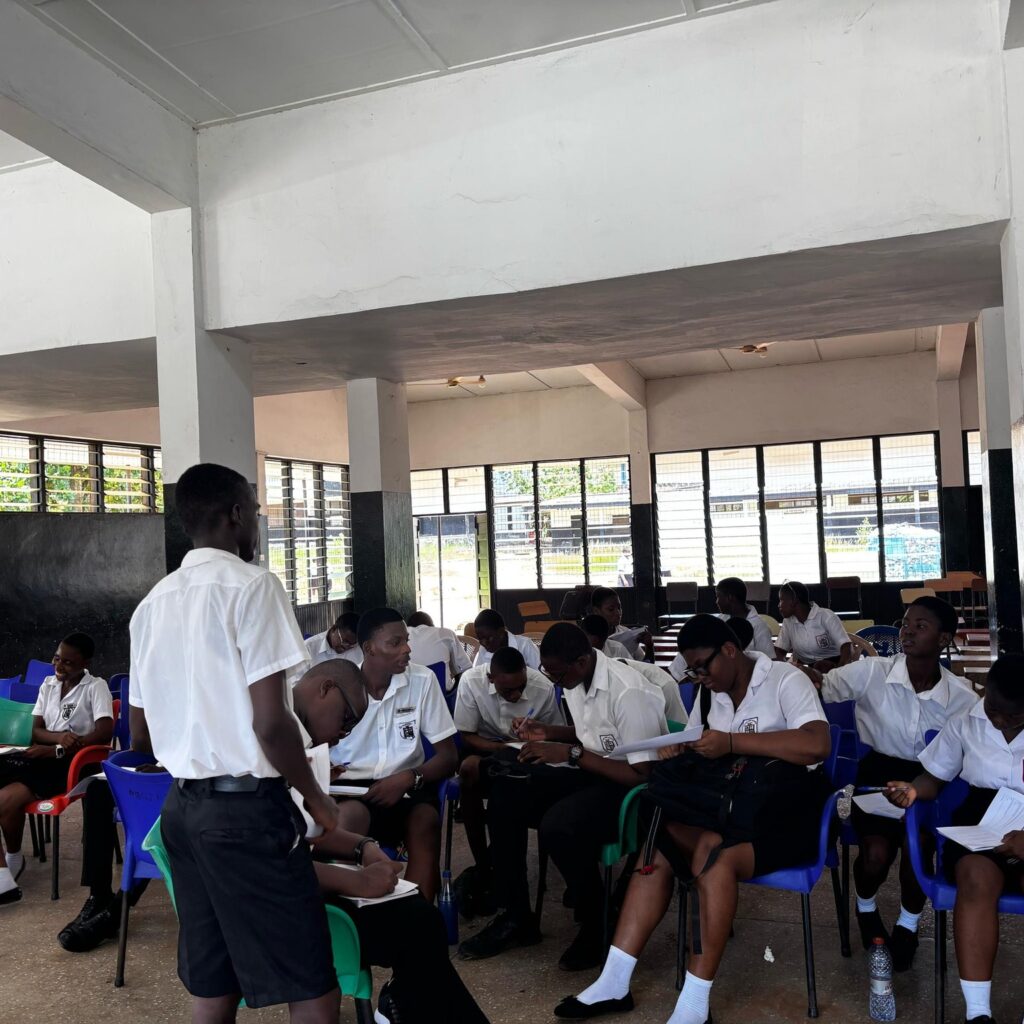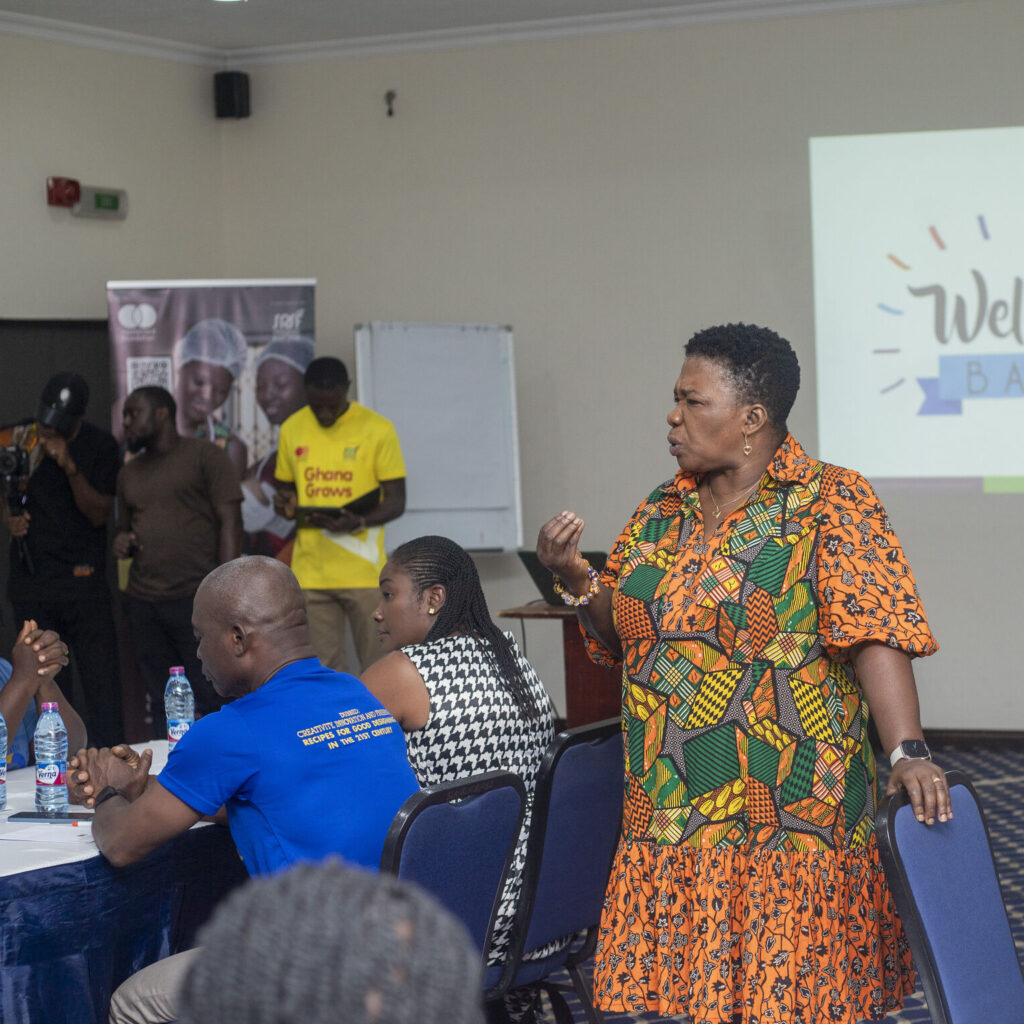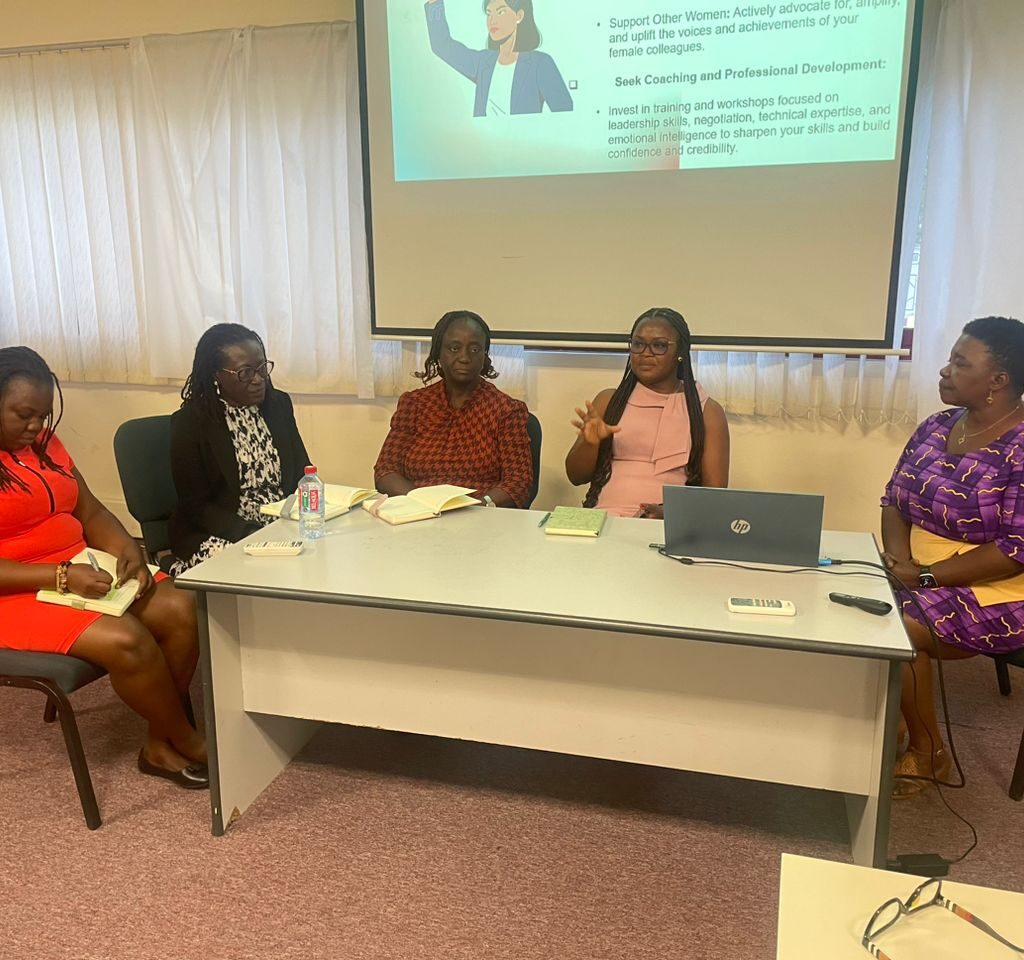Kanko Conducted Rapid Assessment of Gender Transformative Digital Skills in Ghana for UNESCO
Kanko has successfully partnered with the United Nations Educational, Scientific and Cultural Organization (UNESCO) to carry out a critical rapid assessment on gender-transformative digital skills education in Ghana. This assignment was part of the inception phase of UNESCO’s new two-year flagship project, “Closing the Digital Divide: Ensuring Gender-Transformative Digital Skills Education for Women and Girls.”
Kanko Supported UNICEF Ghana’s Parenting Needs Assessment towards the Development of National Parenting Strategy and Training Manual
UNICEF Ghana commissioned Genesis Analytics (lead firm), in partnership with Kanko (local firm), to support the development of a National Parenting Strategy and Parenting Training Manual. Kanko led the data collection phase to assess parenting needs in Ghana, to inform the strategy and training manual. The assessment sought to generate evidence on parenting practices, current delivery models, and caregiver needs across diverse regions and communities. The primary aim is to strengthen family wellbeing and reduce violence against children and intimate partner violence by promoting positive parenting practices and linking families with integrated support services.
Building Leadership Excellence: GNTDA Executives Embrace Transformative Training
In a strategic move to enhance institutional capacity and leadership effectiveness, Kanko, a leading social development consulting firm, recently facilitated a comprehensive Leadership Development Capacity Building Workshop for the Ghana National Tailors and Dressmakers Association (GNTDA). The two-day training at Sunlodge Hotel in Tesano brought together 39 executive members from across Ghana’s 16 regions.
The workshop, funded by the Mastercard Foundation and implemented in partnership with Springboard Roadshow Foundation as part of the Ghana Grows program, aimed to strengthen GNTDA’s organizational capabilities by adopting industry best practices. As a consulting firm specializing in human and organizational development, Kanko designed an interactive and practical training program that addressed the unique needs of GNTDA’s leadership team.
Kanko Facilitates Capacity-Building Training for Women of the Ghana Mineworkers' Union
KANKO SUPPORTED TETRA TECH’S GESI ANALYSIS
With funding from the United States Agency for International Development (USAID), Tetra Tech (USA Based Consulting Firm) is working with Ecom Agro-industrial Corp. (ECOM), a global commodity trading company on a new Integrated land Resource Governance (ILRG II) program from 2023 to 2028. The focus of the program is to increase women’s empowerment, promote climate mitigation, and incentivize reforestation in Ghana. Tetra Tech is conducting a GESI analysis as part of a baseline study for the program and engaged Kanko (Development Consulting Firm) to support this assignment. The GESI analysis aimed to provide baseline information for a better understanding of the barriers and opportunities for gender equality, social inclusion, and women’s empowerment in the cocoa value chain and agroforestry activities in Ghana before the rollout of the ILRG phase two program.
UNICEF Ghana and Ministry of Gender, Children and Social Protection Participated in Training Workshop for Enumerators
Thank you to UNICEF Ghana and Ministry of Gender, Children and Social Protection for participating in our training of enumerators’ workshop towards data collection with community, district, regional and national level stakeholders. All the enumerators were trained on how to effectively administer the data collection tools comprising Focus Group Discussion (FGD) checklist and Interview Guide. The key facilitator was Mrs. Mary Tobbin Osei, the managing consultant of Kanko Limited Company (Development Consulting Firm) engaged by UNICEF Ghana to undertake a gender analysis of selected Social and Behaviour Change interventions and to gather information to improve upon the programmes.
Kanko Visits Savannah Women Integrated Development Agency (SWIDA)
As part of conducting a Third Party Monitoring and Data Quality Assessment of sampled partnerships of the Dutch Embassy, we visited the Savannah Women Integrated Development Agency (SWIDA) team in their Tamale office as well as one of their implementing communities, Nyeko. It was great hearing these rural women express how they have benefited from the interventions and the confidence with which they expressed this was simply amazing. It was particularly impressive, how they have managed to bring the men on board to support their advocacy agenda. We also engaged the Chief and Elders and they were amazing. We had the rare opportunity of sharing the chief’s skin with him.
SusDA Participates In National Climate Change & Green Energy Week
SusDA a subsidiary of Kanko, in the last few years, has been introducing Children to the world of Climate Change. SusDA as an NGO has implemented ideas and strategies that would in turn be beneficial to the society as Children and youth are getting needed knowledge and a level of understanding on how climate change affects us as a population.
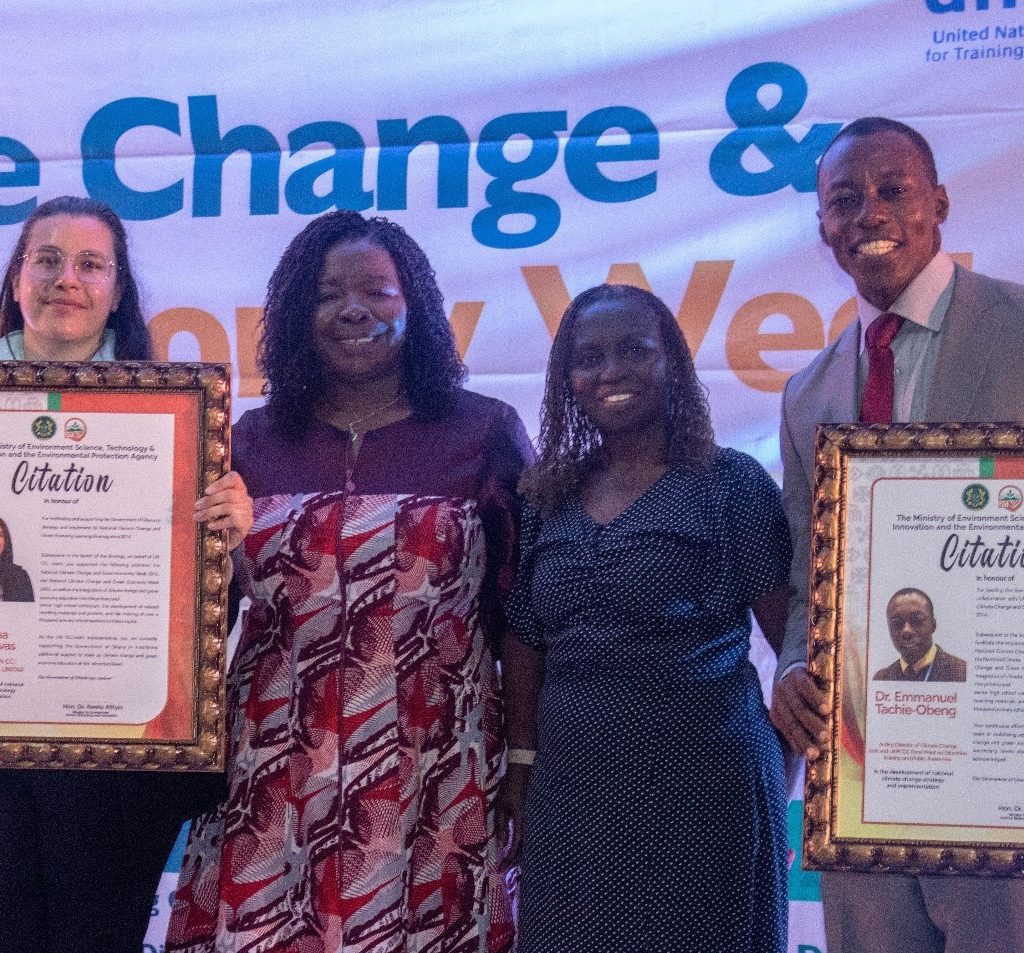
SusDA, has a project called ‘SUAHUNU’. This project gives firsthand insight of environmental preservations, climate change and as a bonus, children get to know of tourist sites such as Bunso Eco Park, Shai Hills, Kokum eco park amongst others. All of these are to teach the children the importance of Greens in our environment and the roles trees and other plants play in the fight against Climate Change and it also peaks their interests in preservations of tress and other plants. This project does not only educate the children, it also helps them develop love for nature. Since they are the future of the nation, getting them involved now would go a long way to benefit Ghana and the world as a whole.
Taking children to these tourist sites would also peak their interests in visiting such places in the country rather than traveling out of the country to enjoy such sceneries elsewhere when they are grown. This country is blessed with gigantic historic trees and beautiful sceneries and SusDA believes that Children are the heart of every nation.
SusDA’s diligence and immense involvement in the fight against climate change and our participation in the activities of the national celebration, earned the NGO a certificate of participation in the just ended Climate Change and Green Economy Week Celebrations.
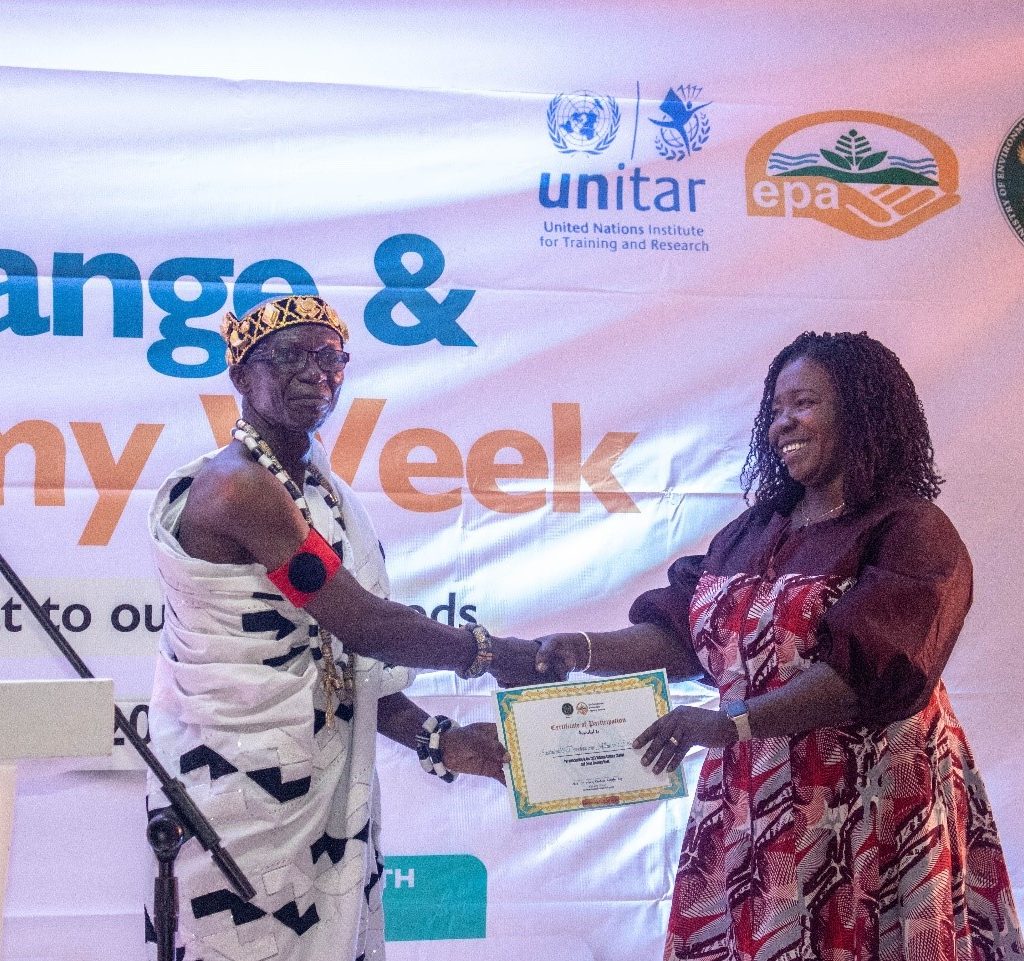
SusDA, has a project called ‘SUAHUNU’. This project gives firsthand insight of environmental preservations, climate change and as a bonus, children get to know of tourist sites such as Bunso Eco Park, Shai Hills, Kokum eco park amongst others. All of these are to teach the children the importance of Greens in our environment and the roles trees and other plants play in the fight against Climate Change and it also peaks their interests in preservations of tress and other plants. This project does not only educate the children, it also helps them develop love for nature. Since they are the future of the nation, getting them involved now would go a long way to benefit Ghana and the world as a whole.
Taking children to these tourist sites would also peak their interests in visiting such places in the country rather than traveling out of the country to enjoy such sceneries elsewhere when they are grown. This country is blessed with gigantic historic trees and beautiful sceneries and SusDA believes that Children are the heart of every nation.
SusDA’s diligence and immense involvement in the fight against climate change and our participation in the activities of the national celebration, earned the NGO a certificate of participation in the just ended Climate Change and Green Economy Week Celebrations.
Maiden Suahunu Expedition
The Suahunu Project, being an initiative of Kanko, has been set in motion to make a positive impact on our world. The target audience are school going children who undoubtedly are the future of this generation and as such, the fate of the longevity of human existence rests on their fragile shoulders. The Suahunu project is to equip young people and build them up with a certain sense of responsibility to the things of nature and ultimately contribute to reducing the dangers of climate change.
Preaching and teaching the young ones about environmental conservation and climate resilience is a good step to instill new attitude for sustainable development in the near future and beyond. The Suahunu Project seeks to give a detailed insight into nature and the role natural bodies play in our world and also let them know how the misuse or maltreatment of our environment has greatly affected us today, not just Africa but the whole world at large.
This Project took off on Tuesday 24th March 2022, with Ascot school as our very first Partner. We visited the Bunso Eco Park in the eastern region. It is rich in history as well as nature. It was a very fun yet a very interesting learning experience for all who were present, not just the school children. Getting to know the uses of certain kinds of tress in construction of railways and learning that a tree is over two centuries old (205). It was truly fascinating and very indulging. We were We were taken to a cocoa farm and we saw ourselves hoe the cocoa fruit is harvest and how the seeds are dried and processed.
It was a lot of fun and it was a vastly knowledgeable encounter, the Proprietress of Ascot school was present to see and hear and experience it firsthand. All of this is being done to get the school children to appreciate nature and also preserve our environments in their own small creative way. Emphasis was on how preserving our environments can help improve our climate.
As our slogan goes “SUAHUNU – EXPERIENCE IT YOURSELF”. It was truly an experience worth experiencing yourself. The maiden expedition was a success, there are more to follow and this will truly be of some benefit to the world in the long run.
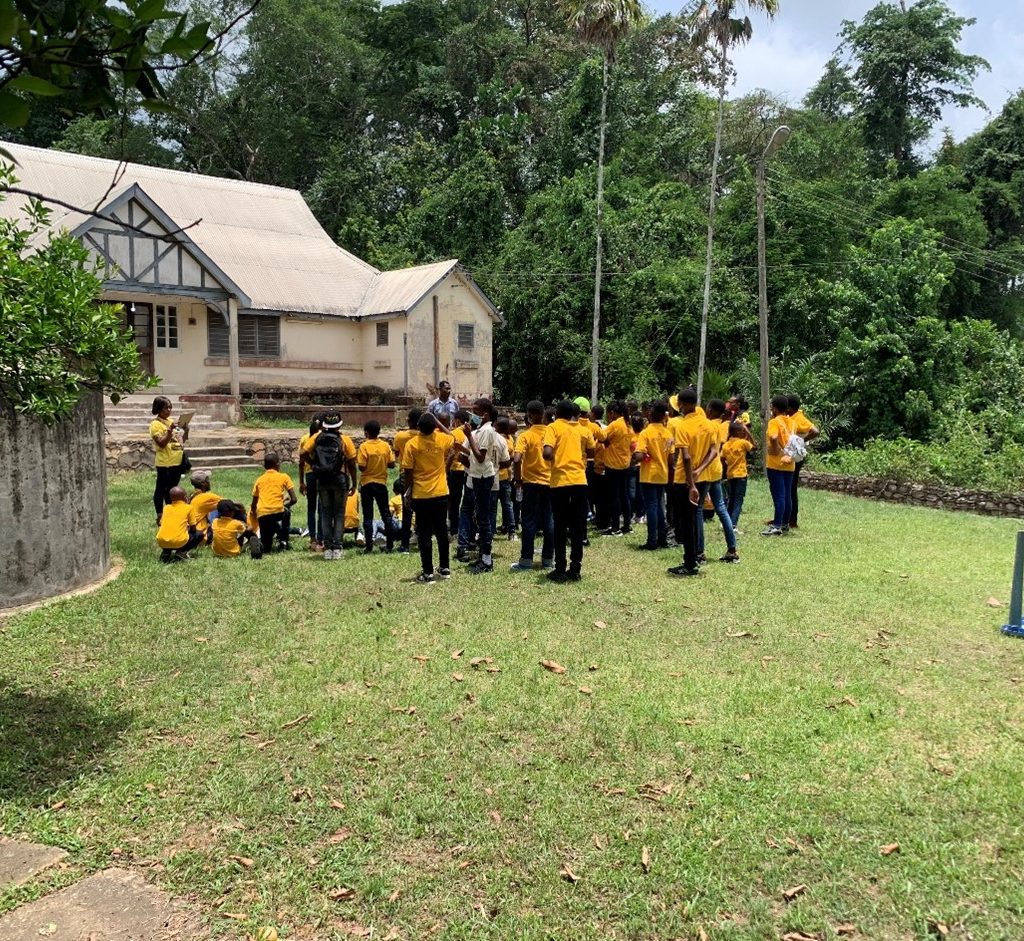
Green Ghana Day 2022
As part of the Green Ghana Day celebrations, Suahunu Project, an initiative of Kanko involved many children from a number of our partner schools. This was part of the implementation of our maiden “One child, One tree” initiative, in collaboration with the Forestry Commission. The national tree planting exercise on Green Ghana Day 2022 was themed “Mobilizing for a Greener Future” and scheduled for Friday, June 10, 2022.
In all, about 150 children participated in the tree planting exercise from four (4) of our partner schools namely; Ascot School, Tantra Hill; Learning Skills International School, Adjiringanor; Hallmark International School, Haatso and; Adjiringanor Basic School. The school children planted 165 tree species comprising shade/forest, coconut, mango and orange seedlings at the individual level and in communal with their schoolmates. In this way, the children joined the adult population to plant seedlings in public spaces mainly on their school compounds. Some of the children, with the consent of their parents, took home seedlings for individual planting, nurturing, and ownership.
The Suahunu team, jointly with the partner schools have established monitoring systems to monitor the growth of the planted trees as part of the respective schools’ extra curriculum activities. This is meant to promote the love for nature and its conservation among young people in the fight against deteriorating climate change.
